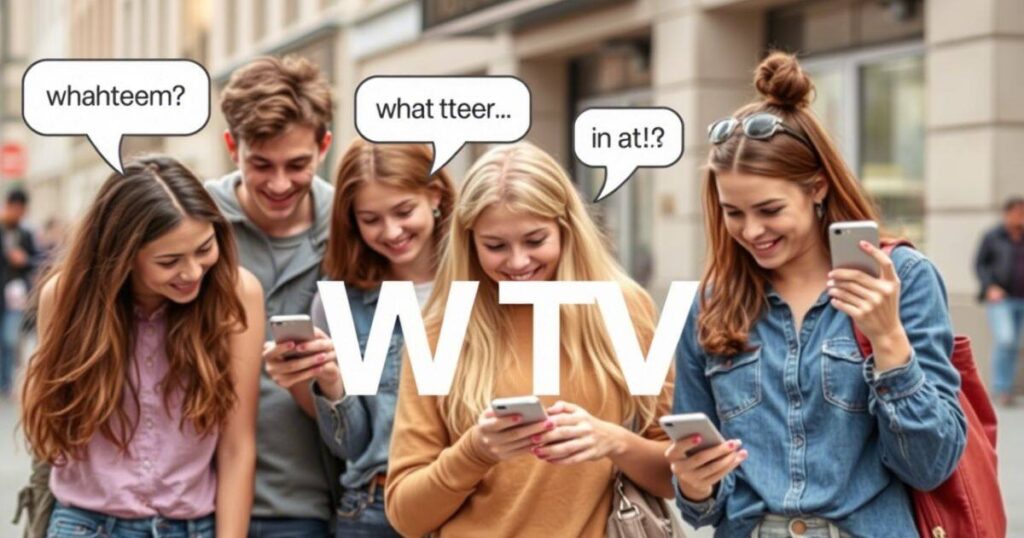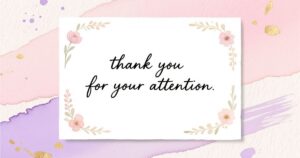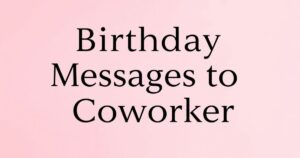WTV is a popular slang used in texting and online chats. It stands for “whatever.” People use what is wtv mean to show indifference or a casual attitude. It’s common in messaging apps, social media, and group chats. Many use WTV slang when they don’t care about something. It keeps conversations short and easy.
But what does WTV mean exactly? In texting abbreviations, it’s a quick way to dismiss something. If someone asks, “Do you want pizza or burgers?” a reply like “WTV in a text” means either is fine. So, what does WTV mean in texting? It’s all about nonchalance. Many use it in online conversations to keep things simple. But remember, in professional communication, it might seem rude. Now you know what WTV means in a text and how to use it!
What Does WTV Mean?

WTV stands for “whatever,” a widely used text slang in digital communication. It’s a quick way to express indifference or a lack of preference. Instead of typing a longer response, people use what is wtv mean to keep their messages short and casual. It’s common in online chatting, messaging apps, and social media, making communication faster and easier.
People often use WTV in a text when they don’t have a strong opinion about something. For example, if someone asks, “Do you want pizza or burgers?” a simple what is wtv mean reply means either is fine. It fits perfectly in informal conversations where a laid-back tone is needed. However, using what do wtv mean in a text in professional communication can seem unprofessional or dismissive. So, while it’s great for casual chats, it’s best to avoid it in work-related settings.
Using This Word in a Sentence
what is wtv mean can fit into many everyday conversations. If a friend asks, “Where should we go for dinner?” responding with “WTV in a text” means you don’t mind the choice. It’s an easy way to show flexibility in plans. Another example: “What should we do this weekend?” – “what is wtv mean” means you’re open to any plan without a specific preference.
In group chats, what do wtv mean in a text is often used to keep conversations moving. If friends are discussing movie options, someone might reply, “WTV in a text, you choose!” It keeps the conversation light and flowing. However, tone interpretation matters. While what is wtv mean is usually neutral, in some cases, it might come across as uninterested or dismissive. That’s why understanding the text message tone is important in online conversations.
Why Do People Use WTV?
People use WTV in a text because it saves time and effort. In today’s fast-paced world, digital conversations move quickly, and texting abbreviations help keep up. Instead of writing a full response, just typing WTV in text makes it easy to reply in seconds. It’s especially useful in messaging apps and social circles, where casual communication is common.
Another reason people use WTV in a text is to maintain a friendly vibe. It keeps conversations lighthearted, showing that someone is easygoing. However, texting etiquette matters. While what do wtv mean in a text works well in informal interactions, it’s not always suitable for serious discussions. In professional communication, using WTV in text might come across as careless. So, knowing when and where to use what do wtv mean in a text is key to effective digital expression.
Using WTV in Everyday Conversations
WTV in text is perfect for everyday conversations where decisions don’t really matter. If a friend asks, “What should we order for lunch?” and you don’t have a strong preference, replying with “WTV in a text” means you’re fine with any choice. It’s a go-to response for keeping things simple.
In online conversations, what do wtv mean in a text is also useful when people don’t want to get into long discussions. If someone says, “Do you think we should go out or stay in?” replying with “WTV in text” shows flexibility. It’s also common in group chats, where quick decision-making is necessary. But be careful—sometimes, a casual response like WTV in text might seem like a lack of enthusiasm. It’s important to consider the tone interpretation before using it.
Who Uses WTV and Why?
Teenagers and young adults use WTV in a text the most. It’s a part of youth slang that keeps messages short and informal. In social media and messaging apps, what do wtv mean in a text makes conversations feel effortless. It’s especially popular in group chats, where people need to make decisions quickly. Instead of debating, someone might say, “WTV in text, I’m good with anything.“
People who prefer quick communication often use WTV in a text as well. It eliminates the need for long explanations and keeps chats flowing smoothly. However, the use of what do wtv mean in a text depends on the situation. In formal vs. informal language, WTV in text is great for casual settings but not for serious conversations. Understanding the right context helps maintain proper texting etiquette while keeping things friendly and efficient.
How to Use WTV in a Sentence
Example 1: Casual Conversation with Friends
- Friend: “What movie should we watch tonight?”
- You: “WTV, I’m fine with anything.”
- Friend: “Comedy or action?”
- You: “WTV in text, you pick!”
- Friend: “Alright, let’s go with action!”
Example 2: Making Plans in a Group Chat
- Person 1: “Where should we meet up?”
- Person 2: “WTV in a text, I don’t mind.”
- Person 3: “How about the coffee shop downtown?”
- You: “Sounds good, WTV works for me.”
- Person 1: “Alright, see you all there!”
Example 3: Responding to a Food Choice
- Friend: “What should we order for lunch?”
- You: “WTV in a text, I’m good with anything.”
- Friend: “Pizza or sushi?”
- You: “WTV, surprise me!”
- Friend: “Okay, sushi it is!”
Example 4: Replying to a Question About Plans
- Friend: “Want to go out or stay in?”
- You: “WTV in text, I’m cool either way.”
- Friend: “Let’s go out then!”
- You: “Alright, WTV sounds fun.”
- Friend: “I’ll pick a place!”
Example 5: Showing Indifference in a Conversation
- Person 1: “Do you care if we take my car or yours?”
- You: “WTV in text, doesn’t matter to me.”
- Person 1: “Alright, I’ll drive then.”
- You: “WTV, that works!”
- Person 1: “Let’s go!”
When to Use WTV and When Not to
Using WTV in a text is great for casual conversations, group chats, or when you genuinely don’t have a preference. It helps keep things light and saves time in fast-paced messaging. However, avoid using WTV slang in professional communication, serious discussions, or situations where your input matters. It can come off as dismissive or uninterested. In digital communication, tone is important, so adding context or emojis can make WTV in a text feel more friendly. Always consider your audience before using WTV slang to avoid misunderstandings.
When to Use WTV
- Casual Conversations – Use WTV in text when chatting informally with friends or family. It keeps the conversation light and easy.
- Showing Indifference – If you don’t have a strong opinion, saying WTV in a text lets others decide without seeming rude.
- Making Quick Decisions – When you don’t care what to eat or where to go, WTV in a text helps speed things up.
- Group Chats – It’s great for online conversations when you want to keep things simple without typing a long response.
- Friendly Vibe – Using WTV in a text can make your messages feel relaxed and easygoing, which fits well in informal interactions.
Related Guide:
150+ Adjectives Start with V: Words That Start with the Letter V
When Not to Use WTV
- Professional Communication – Avoid using WTV in a text in work emails or formal settings. It looks unprofessional.
- Serious Conversations – In emotional or important discussions, WTV slang may come off as dismissive or uncaring.
- Giving Important Opinions – If someone needs real input, saying WTV in a text might make you seem uninterested or lazy.
- Clarifying Details – When planning events or making big decisions, WTV slang might cause confusion or misunderstandings.
- Talking to Elders – Older generations might not understand WTV in a text, so it’s better to use clear language with them.
Balancing WTV in Conversations
- Know Your Audience – Use WTV slang with friends but avoid it in serious or formal conversations.
- Add More Context – Instead of just saying WTV in a text, explain why you don’t have a preference.
- Use Emojis – A smiley face can make WTV in a text feel more friendly rather than dismissive.
- Be Aware of Tone – In digital communication, people can misinterpret WTV slang as careless or rude.
- Mix It Up – Instead of overusing WTV in a text, try saying, “I’m good with anything” or “Your choice works for me.”
Synonyms & Alternatives for Expressing Indifference
Sometimes, you might not want to use WTV in a text, but you still need a way to show indifference. There are plenty of other casual phrases that express the same laid-back attitude. Whether you’re texting a friend or chatting online, these alternatives can help keep the conversation flowing while maintaining a relaxed tone.
- Casual Conversations: Perfect for chats with friends, family, or close colleagues.
- Decision-Making: Great when you don’t have a strong preference about something.
- Online Gaming: Useful when teammates ask for opinions on strategy.
- Social Media Comments: Works well for showing a neutral reaction to posts.
- Group Chats: Helps when deciding on plans but you’re okay with anything.
- Workplace Jargon: Avoid in professional settings; opt for a more formal phrase.
- Polite Responses: Pair with “It’s up to you!” to soften the tone.
- Time-Saving: Quickly conveys that you’re fine with any option.
- Avoiding Arguments: Helps keep the peace when you don’t want to debate.
- Casual Invitations: Works when responding to event invites with low commitment.
- Flirty Conversations: Can be playful when used in a lighthearted way.
- Friendly Banter: Good for joking around in texts without sounding too serious.
- Texting Etiquette: Use with emojis to ensure it doesn’t sound rude.
- Shortened Responses: Great for fast replies when you don’t want to type much.
- Nonchalant Attitude: Ideal for expressing a relaxed, easygoing vibe.
Antonym
If WTV in text shows indifference, its opposite would express strong opinions or preferences. Instead of brushing off a decision, some words or phrases show enthusiasm, certainty, or a definite stance. Here are some antonyms to consider when you want to be clear about your choices.
- Expressing Strong Preference: Perfect when you have a clear opinion on something.
- Serious Conversations: Best when discussing important decisions or commitments.
- Professional Communication: Avoid using what do wtv mean in texting and be more specific in formal messages.
- Clear Decision-Making: Great when you want to show certainty in your choices.
- Emphasizing Importance: Use in situations where your opinion really matters.
- Strong Agreement: Works when you fully support a suggestion or plan.
- Showing Disagreement: Use to strongly reject an idea instead of being indifferent.
- Relationship Talks: Best for serious discussions that require emotional clarity.
- Work Emails: Not suitable for professional settings where clarity is important.
- Event Planning: Use when you have a set plan and want others to follow.
- Direct Communication: Helps to avoid confusion in important messages.
- Leadership Roles: Ideal for taking charge instead of sounding passive.
- Team Decisions: Works when leading a group and needing to set clear expectations.
- Persuasive Arguments: Great when trying to convince someone to see your point.
- Making Plans: Shows enthusiasm when organizing something exciting.
The Tone of what do wtv mean in texting: Friendly or Rude?
The way what do wtv mean in texting in a text is interpreted depends on the context and tone. Some people see it as a chill, easygoing response, while others might take it as dismissive or rude. It’s important to consider who you’re texting and how they might read it. Adding emojis or extra words can help make what do wtv mean in texting slang sound more friendly.
- Friendly in Casual Chats: Works well in relaxed conversations with friends.
- Can Seem Rude: Might feel dismissive if sent without context.
- Depends on the Person: Some people might take it the wrong way.
- Use Emojis to Soften It: Adding 😊 or 😜 makes it sound playful.
- Avoid in Serious Talks: Not great for deep discussions or emotional topics.
- Good for Low-Stakes Decisions: Works when you genuinely don’t care about the choice.
- Might Sound Passive-Aggressive: Some may read it as being annoyed.
- Best for Quick Replies: Short and to the point when you don’t have much to say.
- Common in Teen Slang: Younger people use it casually without offense.
- Not Ideal for Work Messages: Can come across as unprofessional.
- Works in Texting, Not in Speech: Sounds natural in texts but awkward when spoken.
- Group Chat Favorite: Great for when you want to go with the flow.
- Might Confuse Older Generations: Not everyone understands text slang.
- Pair It with a Laugh: Adding “lol” can make it sound more relaxed.
- Better with Close Friends: Use it with people who know your texting style.
The History of the Word
what do wtv mean in texting slang has been around for years, but it became more popular with the rise of texting and social media. As digital communication grew, people started shortening phrases to type faster. Over time, what do wtv mean in texting in a text became a common way to express indifference, much like “whatever.” It’s now widely used in casual conversations, especially among younger generations.
- Originates from “Whatever”: Shortened version of the full word.
- Gained Popularity with Texting: Became common when texting became widespread.
- Used in Online Forums: Started appearing in early chatrooms.
- Social Media Boosted It: Became trendy with platforms like Twitter and Snapchat.
- Teens Made It Popular: Younger people embraced it as part of digital slang.
- Fast-Paced Communication: Helps people text quickly.
- Similar to Other Slang: Just like “LOL” and “BRB,” it shortens everyday speech.
- Not Used in Formal Writing: Mostly for informal digital communication.
- Appears in Memes: Frequently used in internet jokes.
- Some People Find It Lazy: Older generations may see it as improper English.
- Still Evolving: New texting trends may change how it’s used.
- Common in Group Chats: Friends use it to keep responses short.
- Texting Etiquette Matters: How it’s used affects the message’s tone.
- Can Be Misinterpreted: Sometimes taken as rude or dismissive.
- Part of Digital Language Trends: Another example of how language keeps changing.
Fun Facts and Other Acronyms

The world of texting abbreviations is full of interesting acronyms, including what do wtv mean in texting in a text. Some of these slang terms have been around for years, while others pop up with new trends. From everyday phrases to quirky internet slang, these fun facts and acronyms highlight how digital communication keeps evolving.
- what do wtv mean in texting Stands for “Whatever”: A short way to express indifference.
- Common in Casual Texting: Used in friendly conversations.
- Popular in Online Slang: Found in memes and internet culture.
- Used by Younger Generations: Teens and young adults use it often.
- Works in Group Chats: Helps save time when responding.
- LOL Means “Laugh Out Loud” A classic internet acronym.
- BRB Means “Be Right Back” Common in gaming and chatting.
- IDK Means “I Don’t Know” A quick way to express uncertainty.
- TTYL Means “Talk to You Later” Used when ending a conversation.
- SMH Means “Shaking My Head” Shows disapproval or disappointment.
- IMO Means “In My Opinion” A polite way to share thoughts.
- NVM Means “Never Mind” A quick way to cancel a thought.
- ROFL Means “Rolling on the Floor Laughing” A stronger version of LOL.
- BTW Means “By The Way” Helps shift a conversation topic.
- FYI Means “For Your Information” Used to share helpful details.
FAQ’s
What Does WTV Mean?
The means “whatever.” People use it in texting abbreviations to show indifference. It’s common in online chatting and messaging apps.
What Does WTV Mean in Texting?
In texting, is a quick way to say you don’t care. It’s a casual response often used in informal conversations.
What Does WTV Mean in a Text?
In a text is short for “whatever.” It helps keep messages brief, fitting well in today’s fast-paced world of digital communication.
What Does WTV Slang Mean?
Slang is popular among teens and young adults. It’s used in social media and group chats to express indifference or a relaxed attitude.
How Should You Use WTV in Text?
Use in text when you want to keep things casual. But avoid it in professional communication, as it may seem rude or dismissive.
Conclusion
WTV is a simple and popular text slang used in everyday chats. It helps people keep messages short and casual. Many use WTV in text to show indifference. It’s common in online chatting, messaging apps, and social media. When someone doesn’t have a strong opinion, they might reply with WTV in a text. It fits well in today’s fast-paced world of digital communication. But using WTV slang in professional communication may seem rude.
Understanding what WTV means in texting helps with texting etiquette. It’s a digital abbreviation that makes online conversations quicker. People use it in informal interactions and group chats for a friendly vibe. The rise of texting abbreviations shows the language evolution in the digital world. Learning what WTV means in a text improves communication efficiency. So, use WTV in text, but be mindful of the situation!

Atlas Reid is an experienced administrator with 5 years of expertise in managing operations, streamlining processes, and ensuring efficiency. Skilled in leadership, organization, and problem-solving to drive business success.








